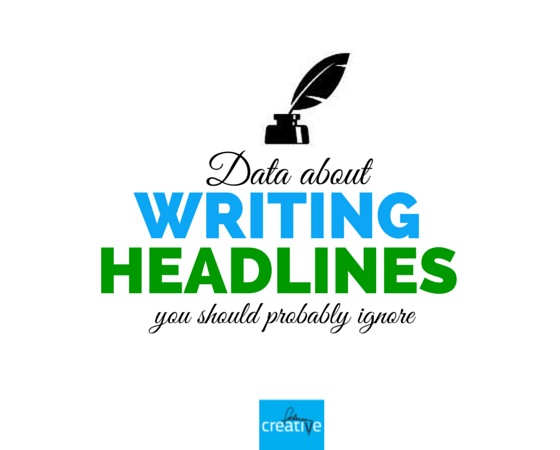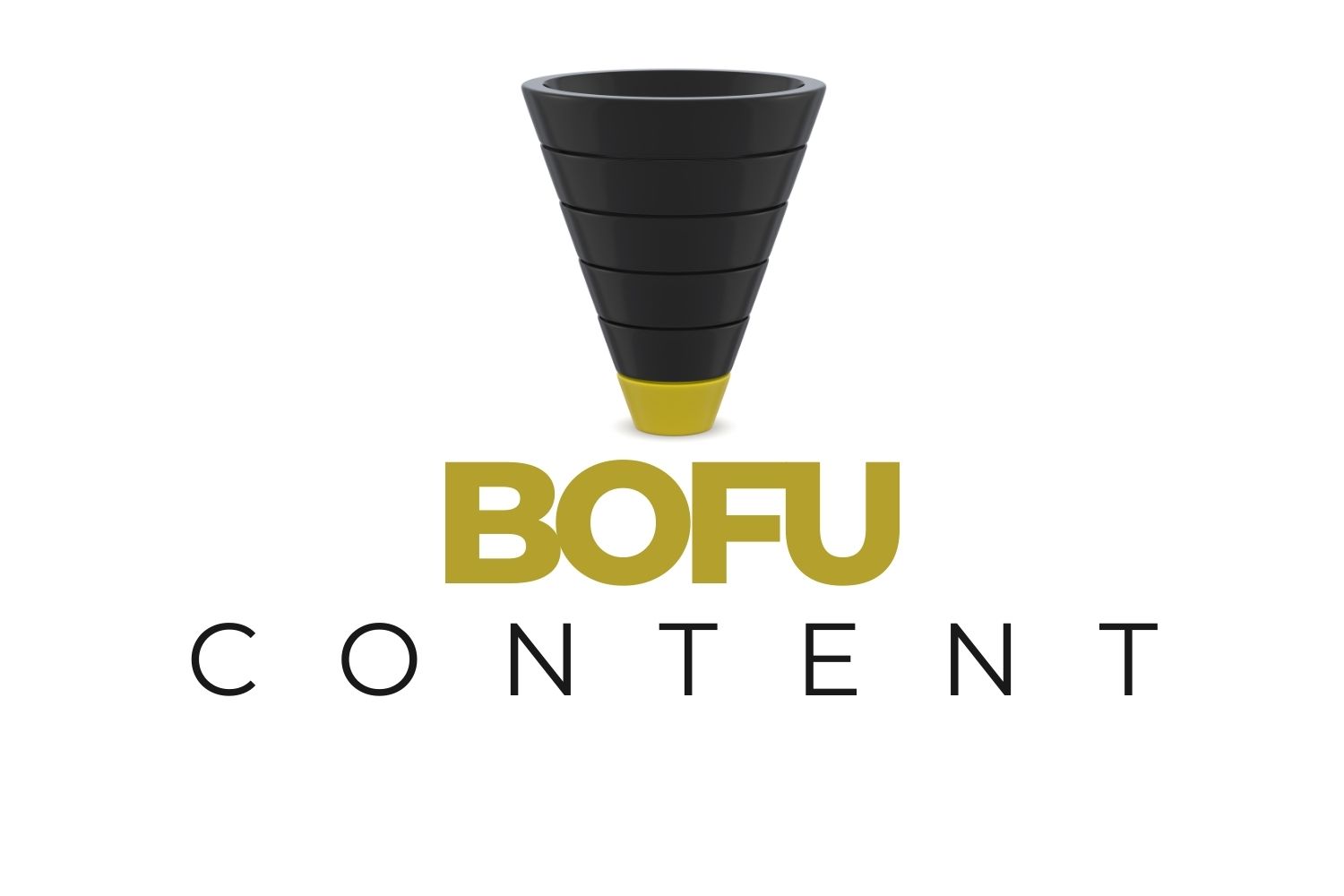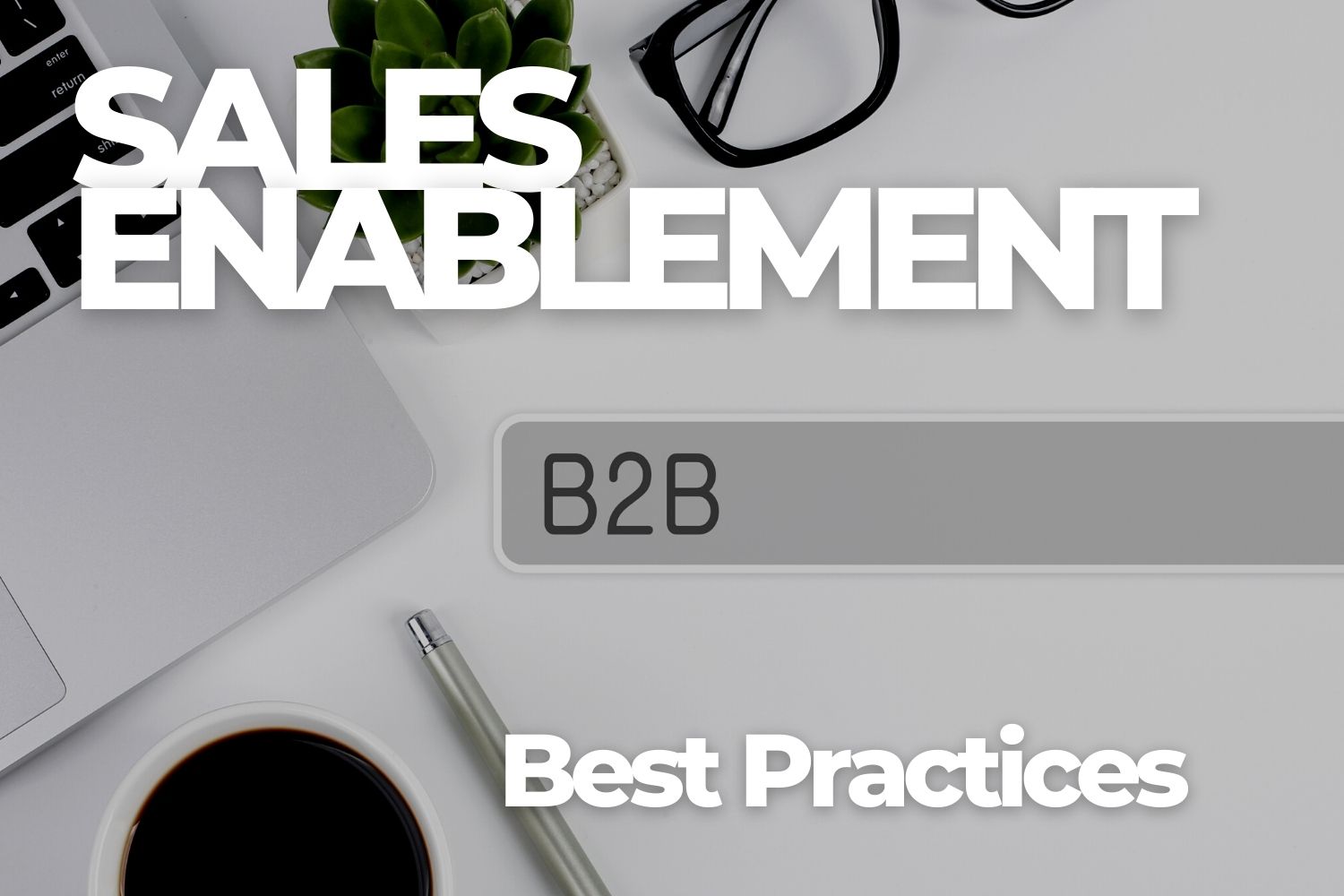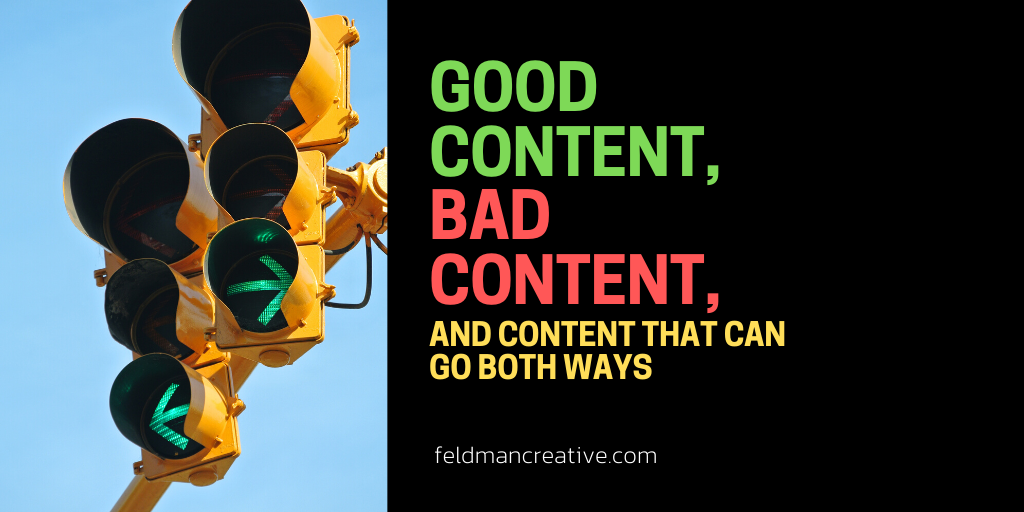What do I know about writing headlines?
Yesterday I was asked to lead a headline writing session at a major marketing conference. I accepted. I’ve done it many times before and enjoy it.
An infographic I created about headlines (presented below) is one of my most popular pieces of content. I’ve written several posts featuring headline writing tips. I get interviewed on the subject all the time. In fact, recently I landed a nice piece of business from a CEO who heard me dispense headline advice on a podcast with Copyblogger’s Damien Farnsworth.
I’m a loyal reader of the HubSpot blog. It’s one of the best. I’m also a contributor to it. In fact, the most popular piece I wrote for HubSpot was my first, Copywriting 101: The Principles of Irresistible Content.
Sooo… when I saw HubSpot and Outbrain had collaborated to produce “Data Driven Strategies for Writing Effective Titles & Headlines,” of course I got my hands on it (but that’s not my hand above).
The 28-page paper reports findings on clickthrough rates, engagement and conversion drawn from a number-crunching study of 3.3 million headlines from paid links. (Outbrain is a content discovery platform, meaning it puts sponsored content in the path of website readers. It’s new media advertising, basically.)
The data is pretty damn shocking…
… and confusing… and frustrating… and counter-intuitive…
It flies in the face of much of what I teach. And it makes the question I asked in the first line of this article, “What do I know about writing headlines?” take on a whole new inflection.
However, I don’t trust the report’s findings. In this age of data-driven everything, it’s an awkward thing to say, but I’m saying it anyway. Of course, I want you to make your own decision regarding the data and whether or not to apply it to your writing. So I shall share it with you.
And stay tuned after I do so because I’ll then show you other data that shoots it full of large holes.
Highlights of the data
The data gets into percentages for how much certain words increase or decrease CTR, engagement and conversion. I’m going to skip them and just give you simple plus and minus factors.
Read the paper if you must know the details (or feel your day won’t be complete without 9 orange bar charts).
Words that increase clicks:
- Who
- Photos
- [Nouns in brackets]
Words that decrease clicks:
- Why
- How to
- Tip
- Easy
- Simple
- Best, always (positive superlatives)
- You, your, you’re
- Need
- Now
- Magic
- Cure
- Free
- Trick
- Amazing
- Secret
Words that increase engagement:
(Engagement was defined as pageviews per session)
- Amazing (which was found on the negative list above)
- Photos
Words that decrease clicks:
This turned out to be the same list as above, except “why” wasn’t on it and negative superlatives such as “worst” or “never” were added.
Words that increase conversion:
- Need (which were no-no’s on the prior list)
- [Nouns in brackets]
Words that decrease conversion:
- Trick
- [Nouns in brackets]
- You, your, you’re (again)
For some reason, the conversion (or “take action”) section was very light. And clearly, the focus was on what not to write. There were very few suggestions on words you should use.
The research also included two additional brief sections:
Headline length—There wasn’t anything particularly interesting on this topic. Make your headline fit the medium and you’ll be fine.
How social and organic (search) work together—On this topic, the paper reveals the “secret to optimizing for both social and search.” Use keywords. Oy.
The conclusion of the research
At the end of the paper by HubSpot and Outbrain, the authors encourage you to start collecting and analyzing your own data. It claims data can be the most powerful tool in your content marketing toolbox.
I don’t know. Data can be useful. But data can be confusing. Data can be misleading. And data can cripple your creativity.
For headline writing, my advice is to consider data, but DO NOT allow it to dictate what you write.
- Let intuition guide your headline writing.
- Let creativity inspire your headline writing.
- Let your understanding of your customer’s wants and needs seed your ideas.
- Let successful examples and experience inform the words you choose.
Finally, most importantly, and maybe most ironically…
Never mind the individual words. (Can you believe a copywriter—a digital marketing copywriting professional—wrote that?) Focus on the thoughts. Focus on the feelings. No one is looking for, gives a crap, or has any biases, about a single word. The people you want to click, engage and convert are looking to solve a problem.
If they don’t know HOW TO do something, they will click, engage and convert when you tell them.
Allow me to disprove the data
With 8,000+ shares and counting, a guest post I wrote for Social Media Examiner is my most shared to date. As you see, the headline begins with “How to,” as does a very large percentage of the posts on what is the most successful blog in social media.
Data from BuzzSumo.com, which reveals social media shares, shows the two most shared posts on HubSpot’s blog in past 12 months feature the word “You.” The second post—with 14.6K shares also features “Tips.”

All three of the most shared posts on HubSpot’s blog the past month have headlines that begin with “How to.” Do you think HubSpot will be dropping “how to” from its lexicon? More taboo word choices used above: simple, tips, tricks.

I found the research suggesting the word “Why” won’t serve you well to be particularly nuts. This post on the top blog EliteDaily.com has more than 1.8-million shares.
I wanted to include a post from Outbrain’s blog to negate their findings, but the company really doesn’t create popular posts. To be fair, a post from February, “The 39 Most Interesting Fashion Brands Today,” has 600+ shares thus far and doesn’t contain one of their no-no words. It does contain a list. Should they have put [List] in brackets?
Go write a great headline
Use any words you want. If your headline makes me curious, I’ll click. If I find more compelling headines on your site, I’ll view more pages. If it offers me something I feel is worth my time or money, I’ll convert.











Comments
Mia Sherwood Landau
This post had me shaking my head and wondering why we have to make everything so complicated… We just want what we want, when we want it. That’s it. It’s not going to make sense consistently because WE don’t make sense consistently. Thanks for the timely reminder, Barry. (Big sigh of relief…)
Barry Feldman
Music to my ears. Being a fan of data-driven marketing doesn’t make me an opponent of applying intuition. Perhaps I made that clear.
Mia Sherwood Landau
Oh yeah, you made that clear! And for those of us who apply intuition regularly, because we “believe in” and trust it, your posts are genuinely refreshing. Part techie, part art.
Barry Feldman
First time I’ve ever been described as techie. Feels kinda good in a kinda weird way. Don’t do it again Mia 🙂
Nathan Ellering
Hey @barryjfeldman:disqus, awesome post. Sometimes, I fall into the trap of using certain words in my headlines because those words are supposed to bring awesomeness to the posts. Right?
I mean, I use a headline analyzer that has some of that built into it.
Speaking of word choices, one thing we’ve noticed is “that will” is supposed to be super powerful. But I think, like you mention, just writing awesome headlines is the way to go. So, why is “that will” supposed to be powerful?
It suggests doing something and how that impacts a goal. So, a headline like “How To Write Awesome Headlines” is kind of… well… blah—what do I get out of it? That headline can turn into something like this, “How To Write Headlines That Will Increase Your Social Media Shares, Traffic, And Engagement” which actually gives me the reason why I should read that post (selfishly).
But really, it’s not the words that are powerful—it’s the idea of a promise. The promise is that if you read this, you’ll learn, grow, get more, or anything else an actionable blog post will teach.
Anyway, pretty interesting stuff. I’ve seen your other posts on headlines, too, and I like the idea of just getting back to the basics.
Barry Feldman
Great comments Nathan. “That will” makes a ton of sense. Love that.
Mathieu Powell
I think it was a misguided study. Next they’ll be analyzing which letters resonate better than others. The sum will always be greater than the parts.
Barry Feldman
Very well said.
Raul Cabrera
Often times I also find myself struggling with rules about headlines, SEO etc, but part of me tells me that´s not natural. I Agree, we tend to complicate things and you can not automate creativity. Let´s go back to the basic, the conversation.
Adam Connell
Great post, Barry!
Crazy this was actually a case study – I’d guess that most clicks through Outbrain’s network are more down to the most eye-catching photo than the headline. Probably explains why
Your post is a great example of why the most important element to writing headlines will always be the human element.